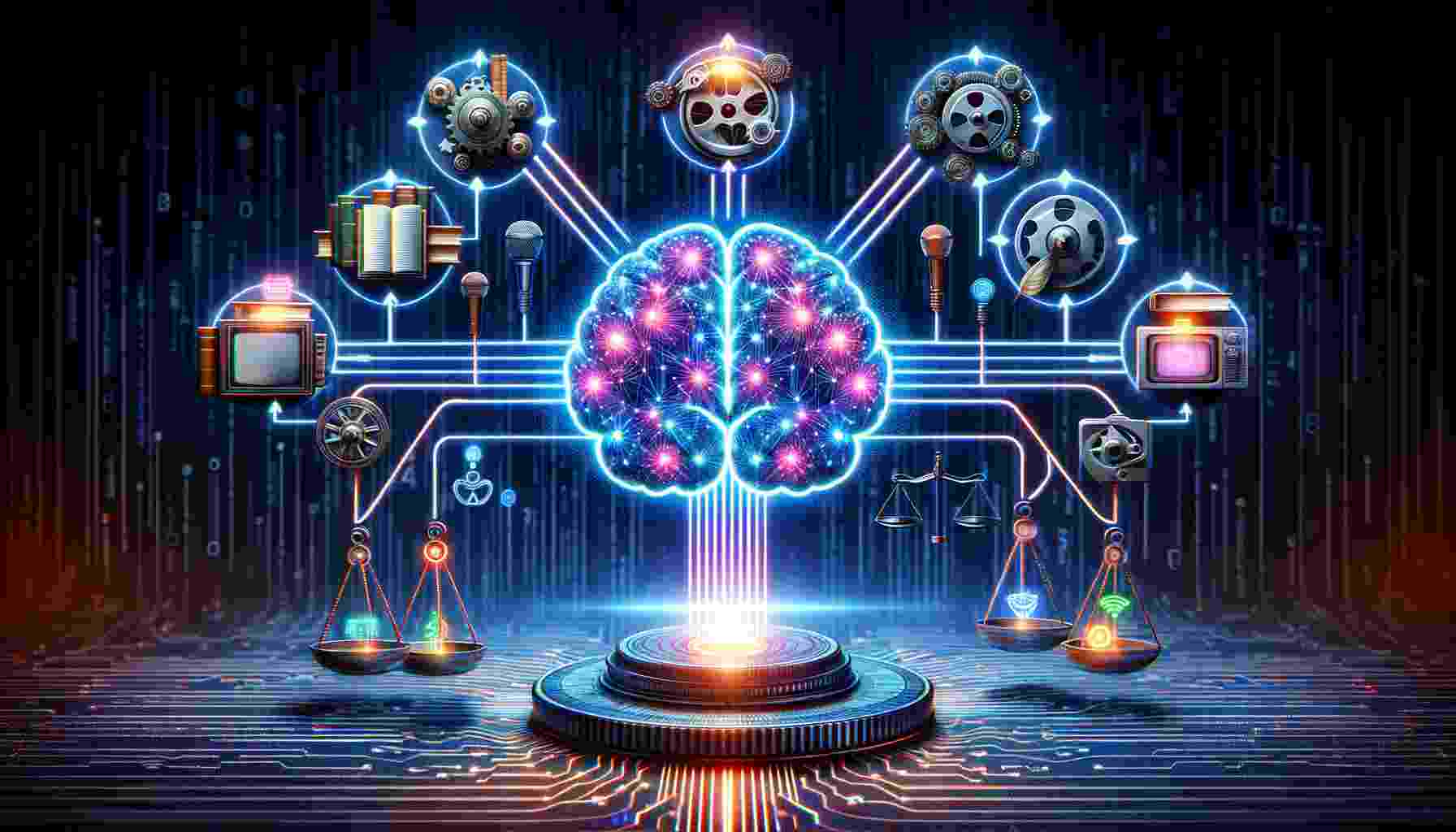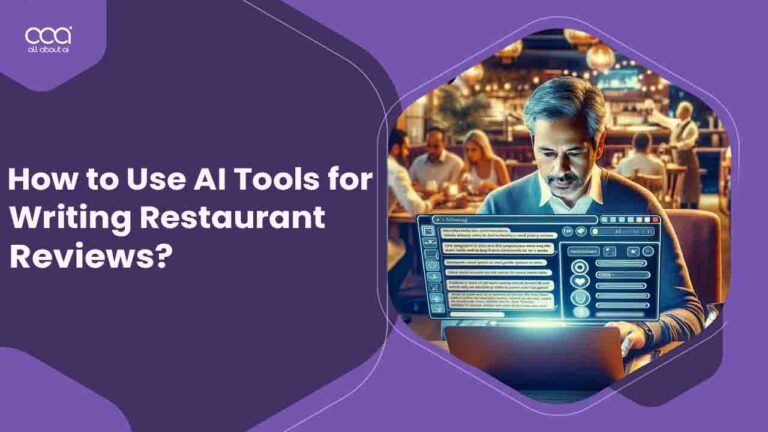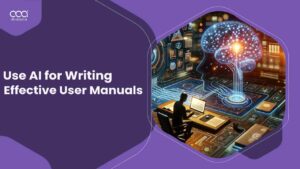When it comes to culinary criticism, AI writing tools have revolutionized the way restaurant reviews are crafted, highlighting how to use AI tools for writing restaurant reviews in Philippines. This article delves into the innovative use of these tools, guiding readers on how to leverage AI for creating engaging and insightful restaurant reviews.
This article will discuss how to use AI writing tools for writing restaurant reviews. We’ll discuss why the best AI writing tools in Philippines are so important for any food blogger and how they can use these tools to improve their reviews.
How to Use AI Tools for Writing Restaurant Reviews in Philippines for 2024: Step-by-Step Guide
AI writing tools have become indispensable assets in the realm of culinary criticism. They assist in structuring, detailing, and refining restaurant reviews, ensuring a balance of professionalism, creativity, and personal insight.
Pre-Writing Preparation
Start by setting the AI tool’s focus on the type of restaurant and your dining experience. This initial step helps in guiding the tone and structure of your review, ensuring it aligns with the unique aspects of your dining experience.
Drafting the Review
Use AI to structure your review, making sure it covers all key elements in a comprehensive and balanced way. AI tools can suggest content structure, language style, and descriptive elements, ensuring a rich and engaging narrative.
Polishing and Finalizing
AI suggestions can be used for refining language and enhancing descriptive details. This final step involves ensuring clarity, engagement, and a professional tone, making your review stand out.

What Makes a Good Restaurant Review?
An effective restaurant review is a blend of art and critique, embodying the essence of how to use AI tools for writing restaurant reviews in Philippines. It’s about sharing a comprehensive and engaging dining experience that transports the reader to the table, leveraging AI to enhance the vividness and accuracy of the review.
- Objectivity: Provide a balanced perspective, highlighting both the positives and negatives. An objective review helps readers make informed decisions and builds trust in the reviewer’s judgment. It should fairly assess all aspects, including food, service, and ambiance.
- Detail: Focus on specifics – from the ingredients in a dish to the decor and ambiance. Detailed reviews help readers visualize the experience and make them feel like they are part of it. Mention specific dishes, ingredients, and aspects of service and decor.
- Atmosphere: Paint a vivid picture of the setting, capturing the mood and theme. Atmosphere greatly impacts the dining experience, and a good review should reflect the essence of the restaurant’s environment, whether it’s cozy, elegant, bustling, or intimate.
- Service: Detail interactions with staff, noting both efficiency and friendliness. Service is a critical component of the dining experience, and a review should reflect the level of attentiveness, professionalism, and warmth encountered.
- Food Description: Explore the sensory aspects of the dishes – taste, smell, texture, and presentation. A great review dives deep into the culinary experience, describing the flavors, aromas, textures, and visual appeal of the food.
- Reader Engagement: Craft a narrative that engages and informs the reader. Engaging reviews tell a story, drawing readers in with a narrative arc that captures their interest from beginning to end.
How AI Writing Tools Enhance Restaurant Review Writing
Knowing how to use AI writing tools for writing restaurant reviews can significantly enrich said reviews. They offer features that amplify all essential elements.
Transforming Review Elements
AI writing tools have the capability to transform key elements of a restaurant review. They provide suggestions and enhancements in real-time, enriching the quality of the review.
Enhancing Objectivity and Detail
AI tools can help maintain objectivity, offering unbiased language suggestions. They remind reviewers to include specific details, providing a more thorough and informative review.
Improving Atmosphere and Service Descriptions
Artificial intelligence tools suggest descriptive words and phrases that vividly portray the restaurant’s ambiance and service quality. This helps in creating a more immersive reading experience.
Refining Food Descriptions
AI tools offer a wide range of culinary terms and sensory descriptors. They help in articulating the taste, aroma, texture, and presentation of food in a more compelling manner.

Why Are AI Writing Tools Revolutionary for Restaurant Reviews?
AI writing tools have revolutionized all aspects of content writing and generation, and restaurant reviews are no exception. Here is why AI writing tools are revolutionary for restaurant reviews, a concept deeply intertwined with how to use AI tools for writing restaurant reviews in Philippines. They offer unique insights and efficiencies that enhance the quality and depth of culinary criticism.
Enhanced Descriptive Capabilities
AI writing tools revolutionize how the sensory experiences of dining are conveyed. They provide a rich vocabulary and varied linguistic structures, enabling reviewers to describe tastes, aromas, and textures in more vivid and evocative ways. This enhanced descriptive capability makes reviews more immersive and engaging for readers.
Efficiency in Content Creation
AI tools significantly expedite the review writing process. They can quickly generate drafts or suggest edits, allowing reviewers to focus more on refining the content rather than starting from scratch. This efficiency is invaluable for professionals who need to produce high-quality reviews consistently under time constraints.
Overcoming Writer’s Block
Even the most experienced writers encounter writer’s block. AI writing tools can suggest ideas, sentence starters, or even entire paragraphs, helping to jump-start the creative process. These suggestions can spark new thoughts or directions for the review, making AI a valuable creative partner.
Customization for Target Audiences
AI tools can analyze data on reader preferences and engagement, allowing writers to tailor their reviews to specific audiences. By understanding what readers are most interested in – be it food, ambiance, or service details – AI can guide writers to focus on these aspects, making the reviews more relevant and appealing.
Consistency in Quality and Style
Consistency in quality and style is crucial, especially for publications or reviewers with a large following. AI tools can help maintain a consistent voice and quality across multiple reviews. They can suggest adjustments to align with a particular style guide or quality standard, ensuring that each review meets the expected level of professionalism.

Common Mistakes to Avoid in AI-Enhanced Restaurant Reviews
When utilizing AI-enhanced tools for crafting restaurant reviews, there are several common mistakes that writers should be mindful of to ensure the quality and authenticity of their reviews. Understanding how to use AI tools for writing restaurant reviews in Philippines is crucial in avoiding these pitfalls and leveraging AI to produce insightful, engaging, and genuine content.
- Over-Reliance on AI: Maintain a personal voice in your review. Excessive reliance on AI can result in a lack of authenticity and personal touch.
- Neglecting Personal Insight: Your personal dining experience is crucial. AI can’t replicate your unique insights and emotions, which are essential for a genuine review.
- Forgetting the Human Touch: AI should support, not replace, human judgment. Reviews need your human experiences and emotions to be relatable and engaging.
- Overcomplicating Language: Use clear and accessible language. Sophisticated vocabulary from AI can make the review hard to understand and disconnect with readers.
- Disregarding Narrative Flow: Ensure a smooth, logical narrative. AI might provide good phrases, but cohesive storytelling is key to a clear, enjoyable review.
- Ignoring SEO Strategies: Balance AI suggestions with SEO best practices. Proper keyword integration and readability are important for online visibility of your review.
The Future of Restaurant Reviews: AI’s Role
The integration of AI in restaurant reviews is not just a fleeting trend, but a transformative movement that’s shaping the future of culinary criticism, underscoring the importance of how to use AI tools for writing restaurant reviews in Philippines. This evolution represents a significant shift towards more insightful, efficient, and diverse food journalism.
Here are five future trends where AI’s role in restaurant reviews will be significantly influential:
Personalized Review Recommendations
AI is expected to revolutionize the way readers find and interact with restaurant reviews. By analyzing individual user preferences, search histories, and even dietary restrictions, AI can offer personalized review recommendations.
This means readers won’t just find generic reviews, but ones that align with their specific tastes and interests, enhancing their decision-making process for dining experiences.
Enhanced Sensory Description Capabilities
Future AI tools will likely be able to generate more vivid and detailed sensory descriptions in reviews. By leveraging advanced natural language processing and a vast culinary database, AI could provide suggestions to reviewers on how to describe tastes, textures, and aromas more vividly.
This enhancement will make reviews more immersive, allowing readers to almost taste and smell the dishes through words.

Real-Time Review Adjustments
AI could enable dynamic customization of reviews based on real-time data. Imagine a review that updates automatically based on the latest menu changes, seasonal ingredients, or even recent diner feedback.
This real-time adjustment capability will ensure that reviews stay relevant, accurate, and highly informative.
Integration of AI-Generated Visual Content
The future might see AI not just in text-based content but also in creating visual content for reviews. AI could generate images or even virtual reality experiences of dishes and restaurant atmospheres, providing a more comprehensive and interactive visual appeal to reviews. This trend could particularly revolutionize online and mobile-based review platforms.
AI-Assisted Predictive Analytics
AI will play a crucial role in predictive analytics within the restaurant industry. By analyzing vast amounts of review data, AI can identify emerging culinary trends, flavor profiles, and consumer preferences.
This insight could be invaluable for restaurateurs for menu development, and also for reviewers, offering them a foresight on what’s becoming popular, shaping their review focus accordingly.
FAQs
Can AI Write Product Reviews?
How AI Can Be Used in the Restaurant Industry?
Can AI Detect Fake Reviews?
Can You Use ChatGPT for Product Reviews?
Conclusion
AI’s role in the travel and tourism industry is increasingly significant, offering innovative solutions for personalization, efficiency, and experience enhancement. From AI travel agents to predictive analytics, the integration of AI in travel is transforming how services are delivered and how travelers interact with their environment.
Now that you know how to use AI tools for writing restaurant reviews in Philippines, why not learn how to use AI to accomplish a whole host of content generation tasks? For this and more, check out the other articles we have in our How To Series. To expand your knowledge of the wider world of AI, read through the articles in our AI Glossary.





